Sustainability Automotive Plasticwaste 18-05-2021 - Arhive
Sustainability Automotive Plasticwaste
Crude Oil Prices Trend
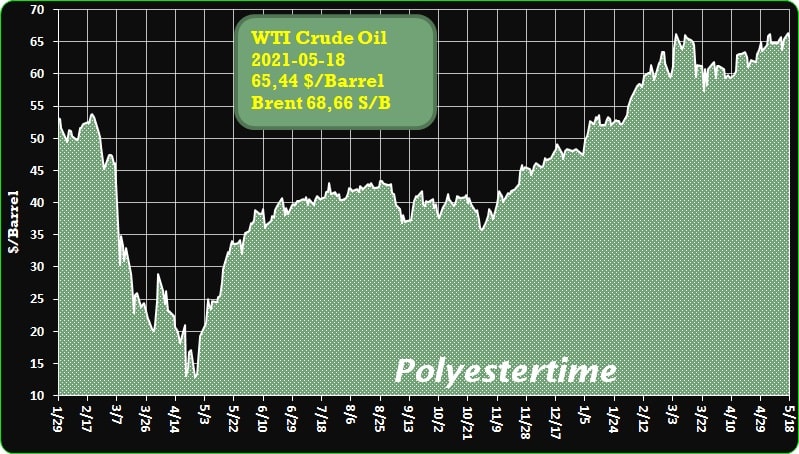
-Dutch PPE Solutions starts meltblown production
Dutch PPE Solutions, the joint venture of Royal DSM and VDL Groep, has begun the sustainable production of virus filtering material for FFP2 and IIR facemasks in a newly built factory in Geleen, the Netherlands.
Dutch PPE Solutions is the first to deliver professional facemasks with the critical filter layer made entirely on Dutch soil with the company hoping that the joint venture will make Europe less dependent on supplies from overseas.
The high-quality meltblown polypropylene fabric is made from bio-based feedstock – used cooking oil – and the manufacturing line runs on renewable electricity. Dutch PPE Solutions’ ambition is to produce the most sustainable filter material for FFP2 and IIR facemasks.
The facility in Geleen was built in record-time. From idea, planning, construction, building and testing to large-scale production took only months, three times faster than regular lead times. The first facemasks from Dutch PPE Solutions were delivered in January 2021, containing filter material from a non-Dutch supplier. Now, meltblown polypropylene filter material from Dutch PPE Solutions is also available to other customers in Europe.
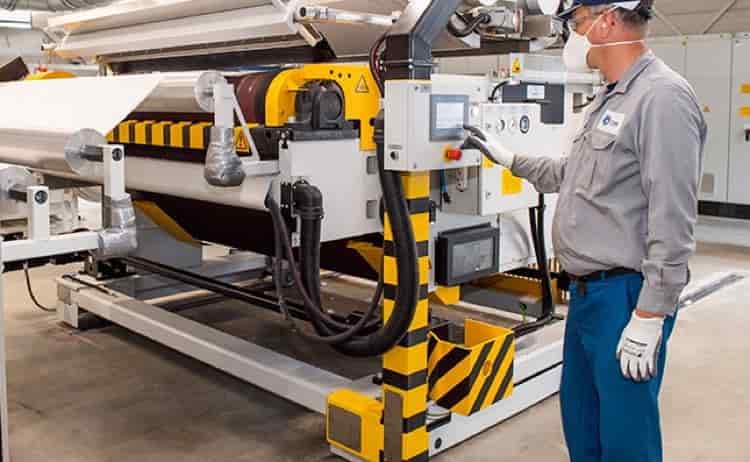
-ALPLA: Recyclable cap with an innovative dosing mechanism
ALPLA has developed a cap for viscous liquids such as ketchup and mayonnaise which is made entirely of polypropylene (PP), making it optimally recyclable. Its innovative mechanism allows for controlled dosing and prevents unwanted dripping. The cap is compatible with standard bottles and can be produced cost-effectively.
Caps for viscous filling media like ketchup, mayonnaise and honey present manufacturers with certain challenges if they wish to meet the consumers’ requirements. Sustainability Automotive Plasticwaste
Many of us are familiar with the experience of a ketchup bottle dispensing its contents onto our food too quickly and in too great a quantity, and then dripping too. Manufacturers have therefore been paying particular attention to the cap dosing system for years. Various materials are used here, but they are problematic in terms of sustainability. With its new controlled dosing cap (CDC), ALPLA presents a cap that makes an impression in terms of its handling, dosability and recyclability.
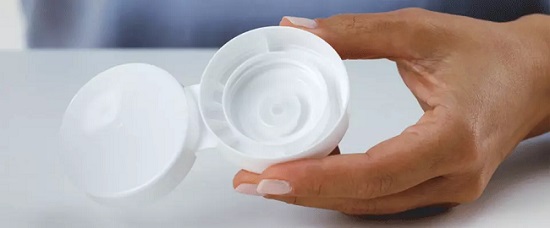
-The “bottle to bottle” during the pandemic: Previero turns a difficulty into an opportunity
Some turnkey plants with an output range between 2,000 kg/h and 9,000 kg/h of washed and regranulated PET flakes from post-consumer bottles collection were recently sold by Previero-Sorema in Latin America. Sustainability Automotive Plasticwaste
These PET bottle recycling plants include automatic feeding, prewashing, delabeling, wet grinding, hot washing, rinsing with flotation and drying sections. Bottles and flakes detectors for material and for colours are also incorporated in the lines, with a single SCADA supervisor system by Sorema for efficient local and remote quality control. The company also offers the possibility of integrating an in-line wastewater treatment plant with the following features: filtering, chemical treatment, biological treatment, sludge dewatering, and super filtration modules (quartzite filters, activated carbon filters, ozone and reverse osmosis treatments etc.) so that the customers are sure of reaching maximum quality and efficiency with minimum management problems.
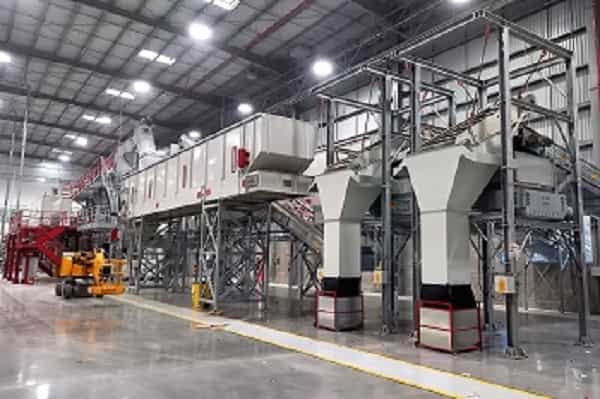
-A growing solution to the plastics problem
Plastics are all around us. Cookware and eating utensils, toys and games, car and truck fenders, syringes, fence posts, single-use water bottles, signs, and even human anatomical parts made on 3-D printers. They’re all made of plastic.
We have Leo Baekeland, a brilliant, but eccentric, Belgian-born chemist, to thank for setting us on the course to our world of plastic.
Experimenting with formaldehyde and phenol formulations, he invented, in 1907, the first type of plastic, which he named Bakelite. A solid heat-resistant product that could be molded into different shapes, it was used primarily for electrical equipment like telephones. Sustainability Automotive Plasticwaste
For his history-making invention, Baekeland landed on the cover of Time magazine. And for founding the first plastics company, the Bakelite Corporation, he became known as the Father of the Plastics Industry. The tagline for his company’s star product: “The Material of a Thousand Uses.”
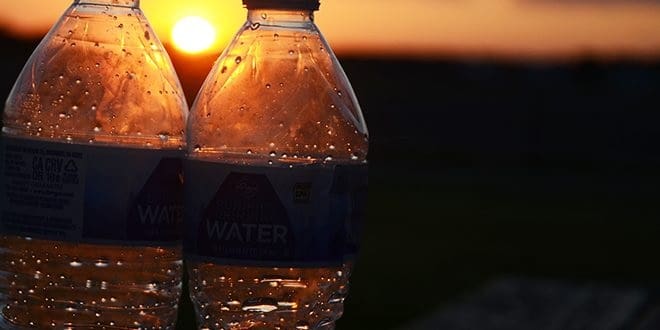
-LyondellBasell to take plastics recycling global with new investments
LyondellBasell Industries N.V. (Rotterdam the Netherlands) announced another step towards its ambition to advance the circular economy by making virgin quality polymers from raw materials derived from plastic waste at its Wesseling, Germany, site, said Chemengonline. Sustainability Automotive Plasticwaste
Produced by the thermal conversion of plastic waste, this raw material is converted into ethylene and propylene in the LyondellBasell production facilities, and then processed into polypropylene (PP) and polyethylene (PE) in the downstream units for plastics production. The first use of raw material derived from plastic waste follows the company’s successful production of plastic materials made from renewable-based raw materials such as used cooking oil, which helps to reduce CO2 over the product life cycle and reduce the use of fossil-based raw materials.
“Advancing the circular economy requires definitive action and by consistently using these new raw materials in the production of polymers on a commercial scale, we are doing our part to help eliminate plastic waste and address climate change,” says Richard Roudeix, SVP Olefins & Polyolefins for Europe, Middle East, Africa and India. “We are expanding our range of sustainable solutions through our Circulen brand and the use of recycled content, offering our customers a way to use recycled polymers in a wide variety of applications.”
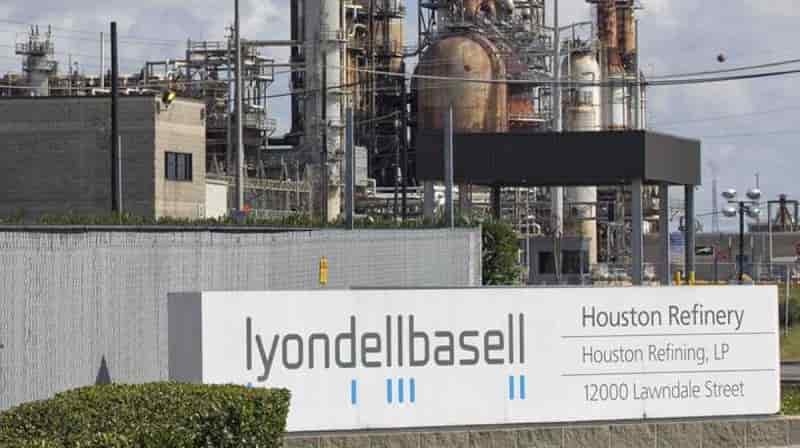
-ORLEN Unipetrol is testing chemical recycling of waste plastics
ORLEN Unipetrol has commissioned a pyrolytic testing unit for waste-plastics processing at its chemical plant in Litvínov. It will explore the possibilities of chemical plastic recycling and its potential implementation in standard production in the next three years. Sustainability Automotive Plasticwaste
The largest petrochemical group in the Czech Republic wants to expand the conventional fuel and plastic production from fossil fuels with new sources that will lead to the decarbonisation of the Czech Republic and compliance with EU policies.
As a traditional petrochemical manufacturer, ORLEN Unipetrol supplies fuels and plastic products for everyday needs to the Czech and Central European markets. They are made of crude oil imported from all over the world. Recently, the company has been trying to include other input resources into production, mainly such that have been considered waste materials up to now.
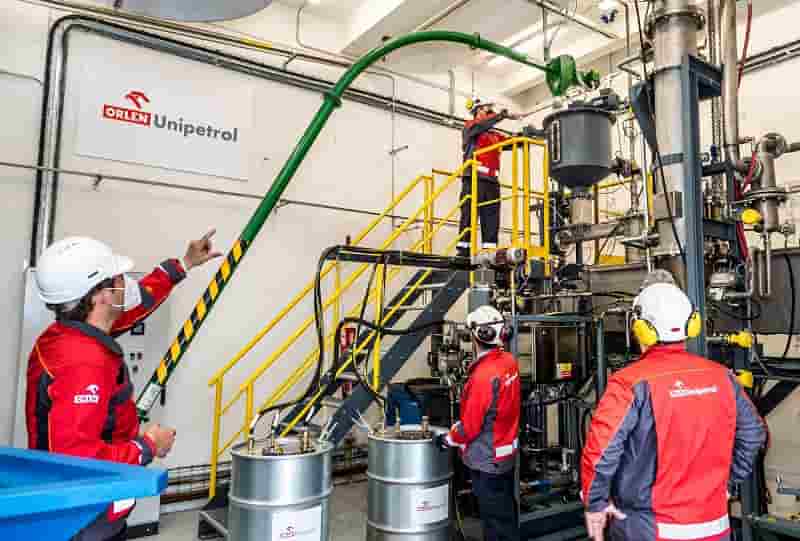
-What is Proportionate Relationship of Polyester Filament and Crude Oil Prices?
The recently published market study by Fact.MR highlights the current trends that are expected to influence the dynamics of the Polyester Filament Market in the upcoming years.Sustainability Automotive Plasticwaste
The report introspects the supply chain, cost structure, and recent developments pertaining to the Polyester Filament Market in the report and the impact of the COVID-19 on these facets of the market. Further, the micro and macro-economic factors that are likely to impact the growth of the Polyester Filament Market are thoroughly studied in the presented market study.
The polyester filament market is likely to witness a revenue generation surpassing US$ 87,000 million by 2018 end. A significant growth in the use of polyester in textile industry including apparel and home furnishing and growing demand for polyester filament in manufacturing of automotive textile are some of the prominent factors driving the polyester filament market revenues.
Fact.MR study opines that the fully drawn polyester filament sales are likely to outsell other types of polyester filaments. Continued preference for fully drawn yarn used in production of textiles and fabrics for high-end sportswear, undergarments, and home textiles are driving the significant growth of fully drawn yarn in polyester filament market.
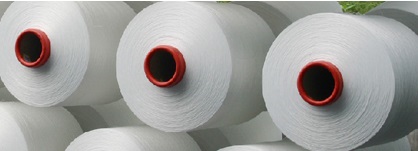
-Indorama Ventures reports year-over-year growth in Q1
The company also projects strong volume, demand and margins for the first half of the year. Sustainability Automotive Plasticwaste
Positive global sentiment, underscored by rebounding global oil prices and vaccine rollouts, has resulted in strong volume and demand as well as strong margins for Indorama Ventures Public Co. Ltd.’s (IVL) key products, the Bangkok-based company states in its first-quarter earnings report. The company says the quarter’s strong volume, demand and margins have been driven by economic recovery in China. The company says it expects strong volume, demand and margins to continue into the second quarter.
According to the company’s first-quarter earnings report, global inventory levels are tight, combined with supply chain shocks, which is leading to margin increase in all commodity products, supporting the increase in crude oil prices. The company says the rise in crude pirces has brought an improvement in the shale gas advantage, benefiting IVL’s integrated oxides and derivatives (IOD) business segment in North America. ILV says it expects to see stronger than anticipated earnings for the first half of 2021 because of all of these combined factors.

-US brand MeUndies launches new swimwear made with recycled materials
MeUndies, US-based men’s and women’s underwear, sleepwear, and loungewear brand, has launched MeUndies Swim, a collection of swimwear made from recycled plastic bottles and recycled nylon material. MeUndies’ new collection features eco-friendly, super-soft, and stretchy fabric, which not only feels good in the ocean, but is also good for the ocean Sustainability Automotive Plasticwaste
The new swim collection follows MeUndies recent launch of its movement-inspired Breathe collection, which marked the first time the company introduced a new fabric to its assortment. MeUndies members and fans are sure to make a splash this summer in the swim collection’s new colours and fun limited-edition prints, which can be mixed and matched across different styles, according to a press release by MeUndies.
For women, the MeUndies swim collection features one-piece bathing suits along with two different bikini styles, including a scoop or plunge bikini top and high-waist cheeky or swim bikini bottoms. The sustainable yet soft pieces are made from recycled nylon and discarded fishing nets. For men, the line includes both regular and long swim trunks, with each comfy and stretchy pair made from around eight recycled plastic bottles, MeUndies said.
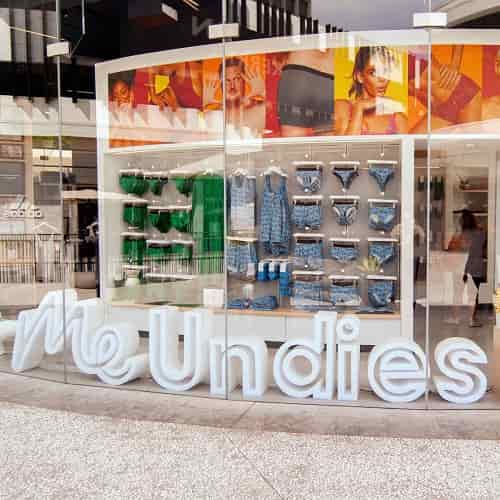
The Lenzing Group will invest more than Euro 200 million in its production sites in Purwakarta, Indonesia, and Nanjing, China, to convert existing standard viscose capacity into environmentally responsible specialty fibers.
In Nanjing, China, Lenzing will establish the first wood-based fiber complex in China that is independent from coal as an energy source. By using natural gas based cogeneration, Lenzing will reduce CO2 emissions at the site by more than 200,000 tons. Sustainability Automotive Plasticwaste
At the same time a line of standard viscose will be converted to 35,000 tons TENCEL branded modal fibers line making Lenzing (Nanjing) Fibers Co., Ltd a 100% wood-based specialty fiber site by the end of 2022.
In Purwakarta, Indonesia, Lenzing will reduce its CO2 emissions by increasingly using biogenic fuels. Additional investments to reduce emissions to air and water will make this facility fully compliant with the EU Ecolabel by the end of 2022. That will allow converting standard viscose capacity into LENZING ECOVERO branded fibers for textile applications as well as LENZING Viscose Eco fibers for personal care and hygiene applications. As a result, the site in Indonesia will also become a pure specialty viscose supplier as of 2023.
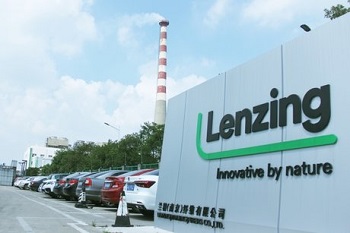
Sustainability Automotive Plasticwaste
